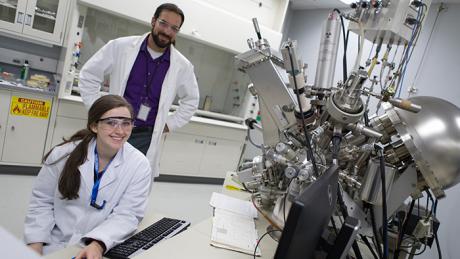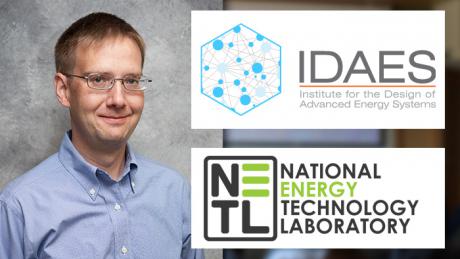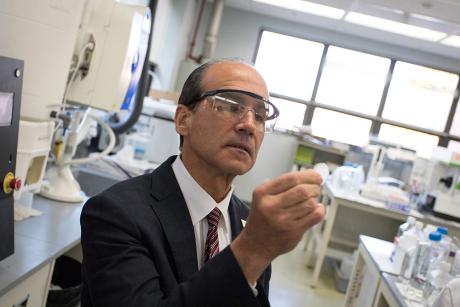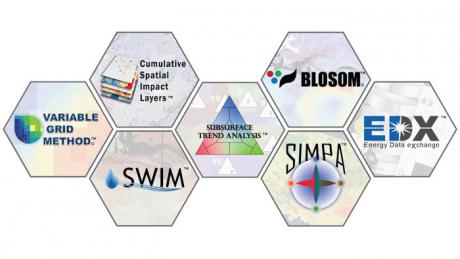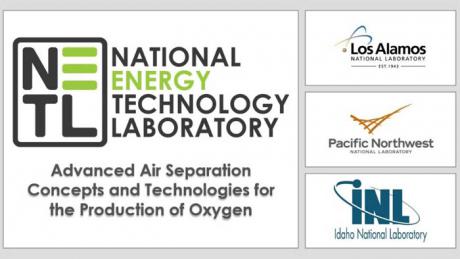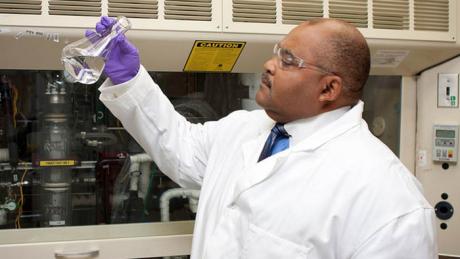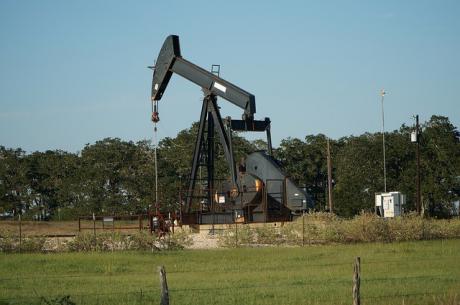Using an array of high-tech microscopy and X-ray diffraction capabilities, NETL researchers are discovering, developing and commercializing innovative technologies that allow the rearrangement of carbon dioxide (CO2) molecules – processes that can help protect the environment by reducing CO2 emissions and creating domestic supplies of fuels and chemicals that are used to benefit the economy.
Energy researchers from across the nation affiliated with the Institute for the Design of Advanced Energy Systems (IDAES) – a partnership of research universities and Department of Energy (DOE) national laboratories led by NETL – convened a wide-ranging workshop Thursday, Nov. 1, in Pittsburgh to discuss progress and review plans for 2019 focused on new computational tools to improve the efficiency and reliability of existing coal-fired power plants and support the development of the advanced energy systems of the future.
The U.S. Department of Energy’s (DOE) Office of Fossil Energy (FE) has selected 17 projects to receive approximately $18.7 million in federal funding for cost-shared research and development. These projects will develop innovative technologies to generate novel, marketable products using carbon dioxide (CO2) or coal as a feedstock, potentially offering significant advantages over traditional products and creating new market opportunities for coal.
A U.S. Department of Energy (DOE) Under Secretary with key energy policy responsibilities visited the National Energy Technology Laboratory (NETL) Pittsburgh site Tuesday, Oct. 30, to discuss the Laboratory’s national research and see cutting-edge technical facilities first-hand.
NETL Acting Director Sean Plasynski, Ph.D., hosted the visit by Under Secretary of Energy Mark Menezes. NETL is DOE’s only national laboratory dedicated to fossil energy research and development.
The U.S. Department of Energy’s (DOE) Office of Fossil Energy (FE) has issued a Notice of Intent (NOI) for a funding opportunity announcement (FOA) for cost-shared research and development (R&D) projects for U.S. universities to conduct early-stage combustion turbine research.
As stakeholders in energy activities seek to improve resource recovery or storage, minimize risks and reduce adverse impacts, they increasingly rely on powerful computing tools that provide critical science-based predictions.
The U.S. Department of Energy’s (DOE) Office of Fossil Energy is investing $4 million in federal funding for four national lab-led research and development projects to identify new concepts and technologies for producing oxygen via air separation for use in flexible, modular gasification systems.
NETL’s McMahan Gray, a physical scientist in Pittsburgh, has been named a recipient of a 2018 Innovation Award from The Pittsburgh Business Times. The honor, to be bestowed at a special ceremony later this year, recognizes extraordinary advances that challenge conventional thinking
Gray is being honored for his work developing an effective, efficient and environmentally friendly technology that can remove carbon dioxide from air, remove lead from water, and recover rare earth elements (REEs) from water and waste streams.
The U.S. Department of Energy’s (DOE) Office of Fossil Energy (FE) has approved an unsolicited proposal, titled Quantification of Methane Emissions from Marginal (Small Producing) Oil and Gas Wells, received from GSI Environmental Inc. (GSI). The data collected from well sites in basins across the United States will help address critical knowledge gaps and support best management practices that are appropriate for marginal wells.
The U.S. Department of Energy’s (DOE) Office of Fossil Energy (FE) has issued a Notice of Intent (NOI) for a funding opportunity announcement (FOA) for cost-shared research and development projects that will ultimately enhance the potential for deepwater enhanced oil recovery (EOR) of conventional resources. DE-FOA-0002005, Advanced Operations and Sensing Technologies to Improve Efficiency and Capabilities for EOR in Deepwater Offshore Wells, will support DOE’s offshore oil and gas portfolio.





